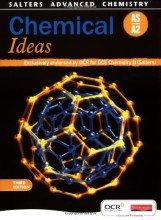Medicines by Design - Organic reactions
18 important questions on Medicines by Design - Organic reactions
What conditions are needed to convert a primary alcohol into an alkene? What type of reaction is this?
Aluminium oxide (Al2O3 (s)) 300 degrees text-decorationOR conc sulphuric acid and reflux
= dehydration (elimination) reaction
What conditions are needed to convert a primary alcohol into an aldehyde? What type of reaction is this? What is the backwards reaction?
= distillation
= oxidation
Aldehyde to alcohol = NaBH4
= reduction
What conditions are needed to convert an aldehyde into a carboxylic acid? What type of reaction is this?
- Higher grades + faster learning
- Never study anything twice
- 100% sure, 100% understanding
What conditions are needed to convert a carboxylic acid into an ester? What is the backwards reaction? What type of reactions are these?
= esterfication/ condensation
Ester to carboxylic acid = H+ (aq) or OH- (aq) + reflux
= hydrolysis
What conditions are needed to convert an acyl chloride into an ester? What type of reaction is this?
= acylation
What conditions are needed to convert a carboxylic acid into an acyl chloride?
What conditions are needed to convert an acyl chloride into a primary amide? What type of reaction is this?
= acylation
What conditions are needed to convert a primary alcohol into an halogenoalkane? What type of reaction is this?
HBr (aq) + reflux
= Nucleophilic substitution
What conditions are needed to convert an alkene into a halogenoalkane? What type of reaction is this?
= electrophilic addition
What conditions are needed to convert an alkene into an alkane? What type of reaction is this?
= Electrophilic addition
What conditions are needed to convert a halogenoalkane into an amine? What type of reaction is this?
= Nucleophilic substitution
What conditions are needed to convert a halogenoalkane into a nitrile? What type of reaction is this?
= Nucleophilic substitution
What conditions are needed for the bromination of benzene? What type of reaction is this?
= electrophilic substitution
What conditions are needed for the chlorination of benzene? What type of reaction is this?
= electrophilic substitution
What conditions are needed for the alkylation of benzene to a carboxylic acid? What type of reaction is this?
= electrophilic substitution
= Friedal- Crafts reactions
What conditions are needed for the nitration of benzene? What type of reaction is this?
= electrophilic substitution
What conditions are needed for the reduction of nitrate benzene? What type of reaction is this?
= electrophilic substitution
Suggest a raw material from which prop-1-ene is produced in industry.
Crude oil
The question on the page originate from the summary of the following study material:
- A unique study and practice tool
- Never study anything twice again
- Get the grades you hope for
- 100% sure, 100% understanding
































